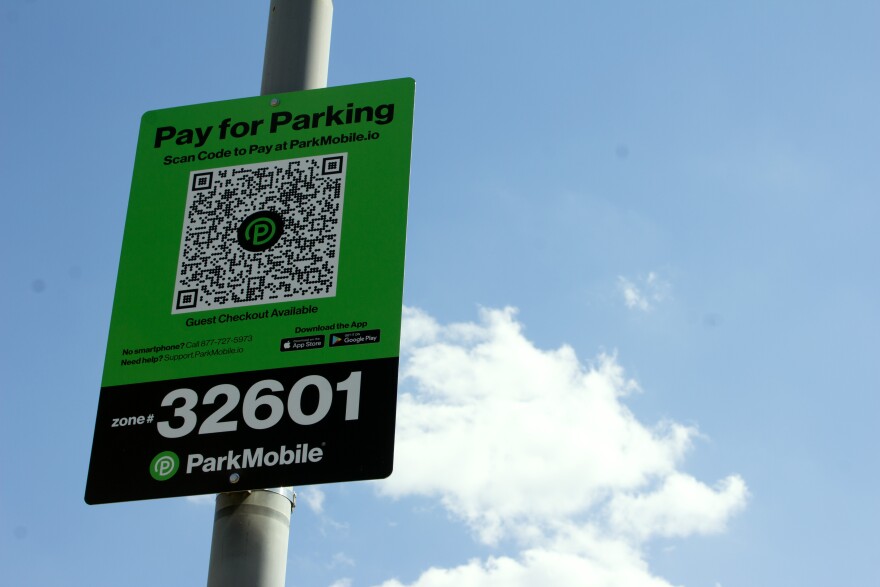Paid parking in downtown Wichita is likely to begin next year, after the City Council approved a parking plan Tuesday.
Downtown rates will be set at $1 an hour. Assistant city manager Troy Anderson said the program will likely “soft-launch” in June and come on board fully in July.
Parking in Delano will remain free, while the future of parking in Old Town is still uncertain.
The five council members who voted for the plan said it was a good compromise and offered financial stability for the city’s parking fund.
“It gives us more revenue, gives us a great map forward,” said council member J.V. Johnston.
City staff say Wichita needs paid parking because of the expense of maintaining infrastructure like parking lots and garages. The city has estimated previously that each parking spot costs $400 a year to maintain, but the current system brings in just $227 a year per parking space.
The new parking plan will cover the operations and maintenance costs of parking, while also bringing in a roughly $453,000 surplus in year one of implementation, according to the city’s agenda report. The extra dollars will be used for future capital expenses.
Mayor Lily Wu and council member Mike Hoheisel voted against the parking plan. Hoheisel said that he would prefer a plan that includes selling some of the city’s parking garages and lots because many of them face thousands of dollars in deferred maintenance.
Wu was frustrated by the city’s past failure to increase the rates businesses pay for parking, which has cost the city around half a million dollars a year since 1999.
“My vote will be against this plan as I still feel like we have not been completely up front with the community with all the data that needs to be shared,” Wu said.
The parking system in Old Town still needs to be finalized. The plan approved Tuesday allows the city to move forward with adding parking meters to Old Town.
But businesses there have the opportunity to avoid the meters by petitioning the City Council to add a 2% “community improvement district” sales tax in the area. The tax would pay for parking costs in Old Town instead of meters. But Old Town property owners would need to bring the petition in the next 60 days.
Several Old Town businesses – from restaurant owners to rental property managers to law firms – told the council they preferred a sales tax. They don’t want customers to worry about filling up the parking meter while visiting their establishment.
“We believe a CID sales tax offers a better path forward by funding the necessary improvements, maintenance and hopefully revitalizing the area without overtly penalizing visitors,” said Daron Adelgren, the general manager of Pumphouse, a bar and grill in Old Town.
“Visitors may seem less concerned with a small increase on their purchases, whereas a direct parking fee is an immediate and highly visible cost that will deter people from visiting Old Town.”
But downtown economic development leaders said paying for parking with a CID sales tax was inappropriate.
“If we misappropriate that funding tool for parking, we will not be able to use that for redevelopment in the same district over the next 20 years,” said Heather Schroeder, executive director of Downtown Wichita.
Members of the Old Town Association said they would soon start gathering signatures to petition the city for the new sales tax.
“There's a ton of support for this, and that's why it will be easy to put together,” said Brooke Russell, owner of Public in the Brickyard, a restaurant in Old Town. “Because we've been talking about this for a long time and figuring out our plan for how to move this forward.”
Wichita’s policy requires 100% of property owners in an affected district agree to petition the council to add a sales tax. City manager Robert Layton said the council could waive this policy if Old Town brought forward a petition, as state law only requires 55% of property owners.
Many Old Town businesses also pay the city for certain parking spaces near their buildings. To avoid meters, businesses must begin paying higher rates to the city for each space, according to the plan City Council passed.



